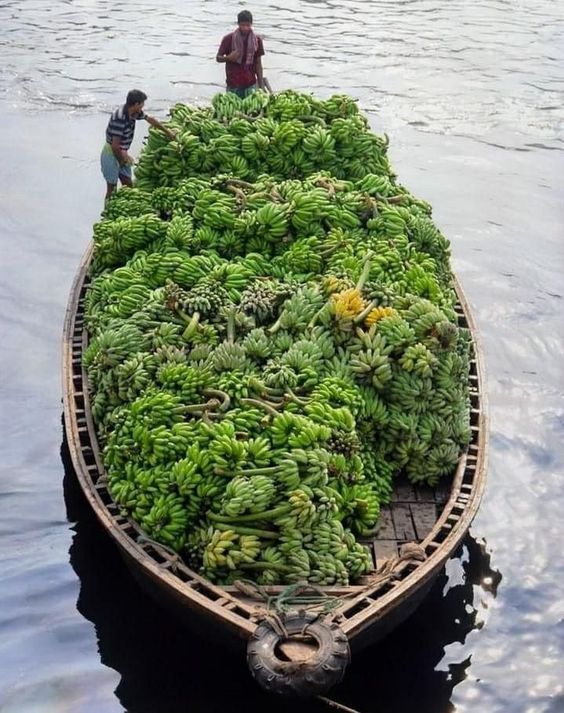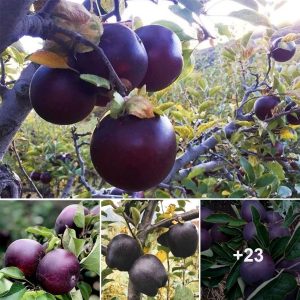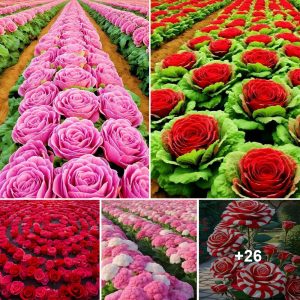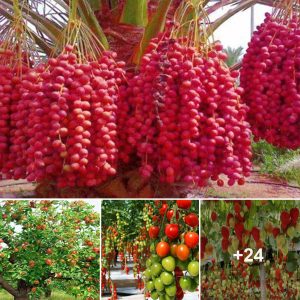In the idyllic landscapes of diverse countries, rivers and waterways burst into life with the enchanting presence of floating fruit barges. These traditional vessels, laden with a vibrant assortment of fresh fruits and vegetables, paint a captivating tableau on the water, encapsulating the essence of agriculture and cultural heritage. In this exploration, we dive into the intriguing world of these floating fruit barges, uncovering their historical roots, symbolic significance, and the immersive experiences they offer to both locals and tourists.
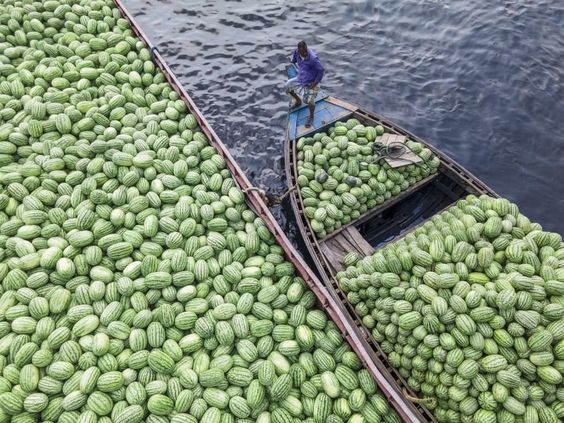
A Legacy of Trade and Tradition:
The use of fruit-laden boats or floating markets carries a rich historical legacy in many riverine regions. With roots stretching back centuries, these barges played a pivotal role in transporting goods, including fresh produce, from farms and orchards to bustling marketplaces in towns and cities. Over time, these waterborne markets evolved into vibrant cultural symbols, preserving traditional modes of commerce and fostering community interaction.
A Feast for the Senses:
As the sun rises, the floating fruit barges gracefully emerge, bedecked with a kaleidoscope of fruits and vegetables. Luscious oranges, plump mangoes, succulent watermelons, and an array of tropical delights create a visual feast for onlookers. The air is saturated with the sweet fragrance of ripe produce, while the sounds of enthusiastic sellers and bargaining customers contribute to the lively ambiance.

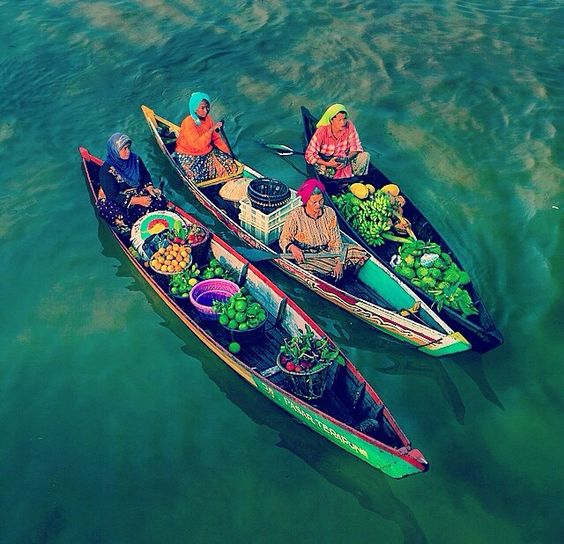
An Immersive Cultural Experience:
Beyond being a marketplace for fresh produce, floating fruit barges offer a unique and immersive cultural experience. Local farmers and vendors, often adorned in traditional attire, artfully arrange their goods, enticing passersby to sample and purchase. The interaction between sellers and buyers evolves into a delightful cultural exchange, where stories and recipes are shared, fostering a profound sense of community.
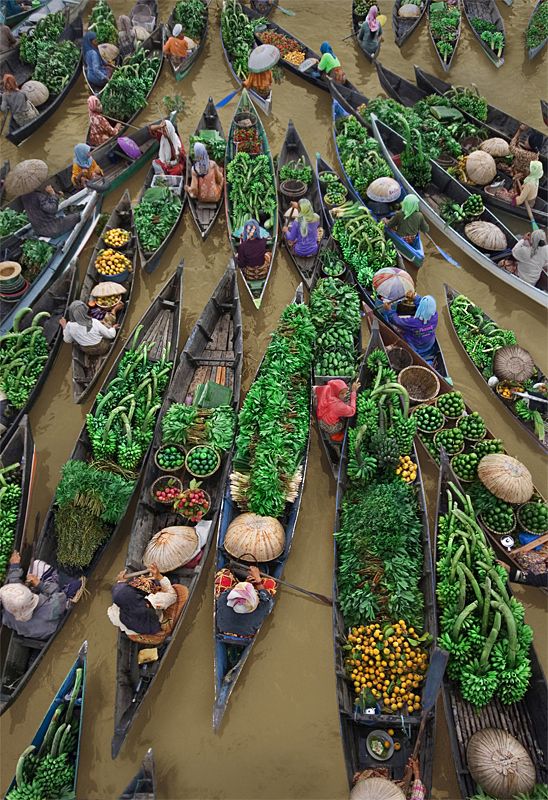
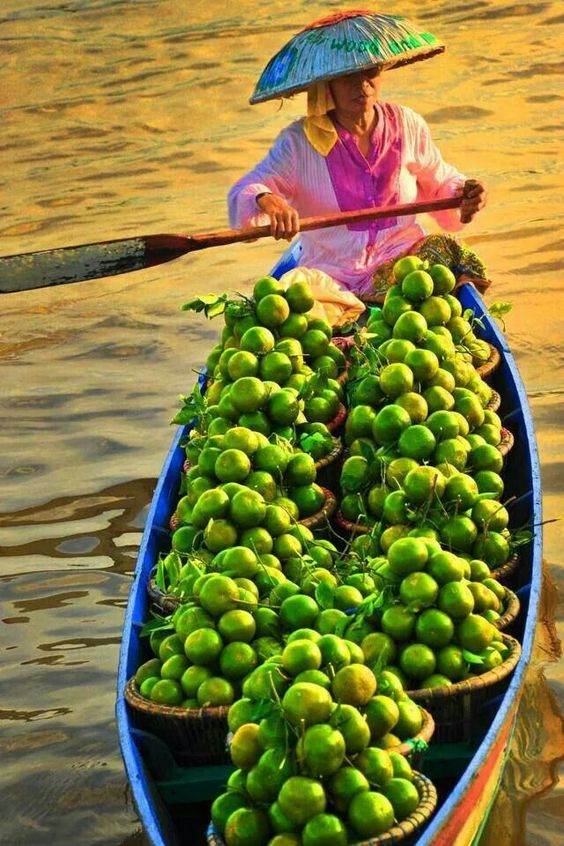
Sustainable Commerce and Agriculture:
In numerous regions, floating fruit barges play a role in sustainable agriculture and commerce. By directly connecting farms to consumers, these barges mitigate the carbon footprint associated with transportation and packaging. Moreover, they empower local farmers by offering direct market access and fair prices for their products, thereby bolstering the rural economy.
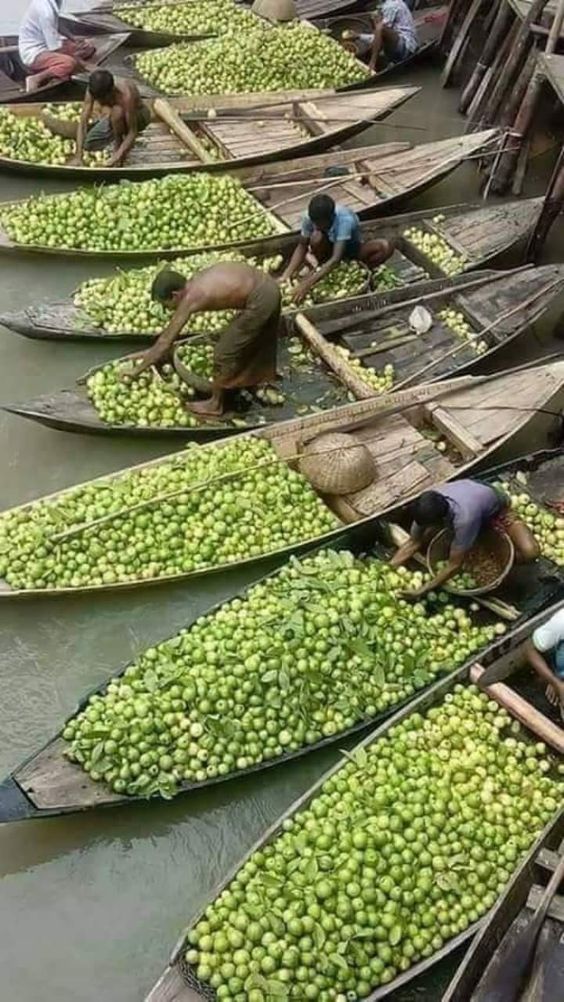
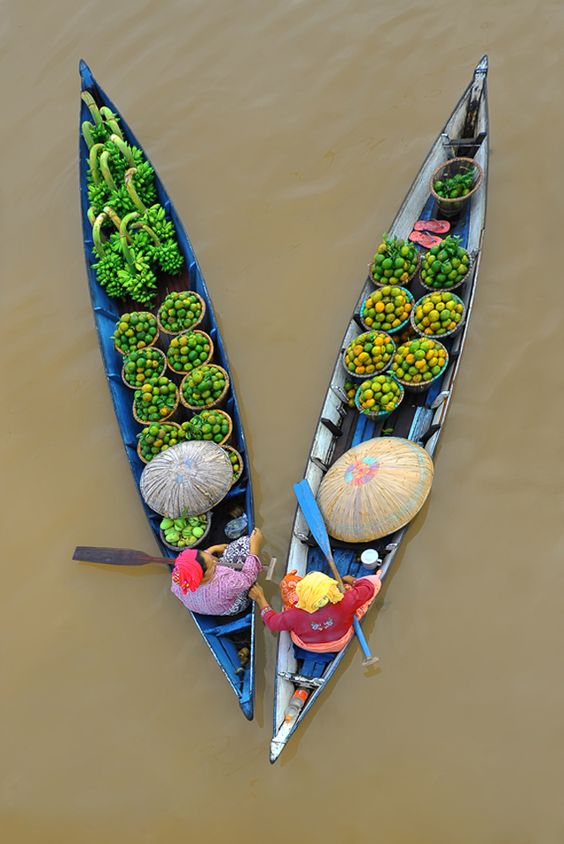
Tourism and Heritage Preservation:
For travelers and tourists, witnessing the spectacle of floating fruit barges is an indelible experience. It provides a window into the traditional way of life deeply rooted in the agricultural heritage of the region. As these floating markets draw visitors from around the globe, they simultaneously contribute to the preservation and celebration of the unique cultural identity of local communities. The floating fruit barges become not just a marketplace but a living testament to the intersection of history, agriculture, and community spirit.
